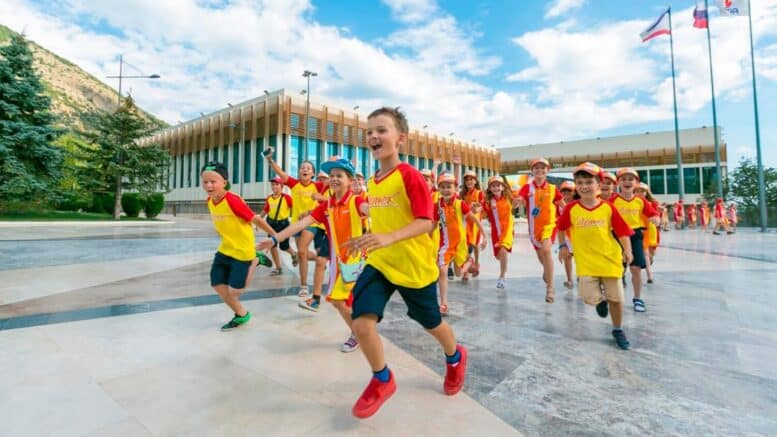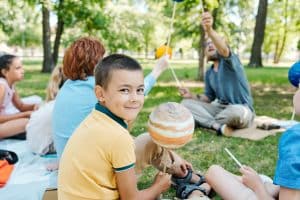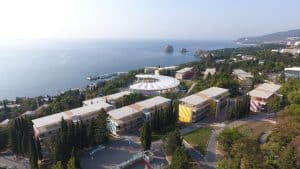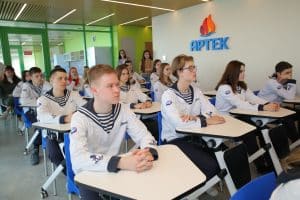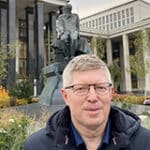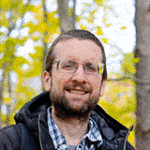For many Russian children, summer camp is a cherished rite of passage—an escape from school routines into a world of bonfires, games, and shared songs. But behind the simple joys of camp life lies a rich and often politicized history. From the Pioneer camps of the Soviet era that blended recreation with ideological training, to today’s wide range of commercially-run and sometimes state-supported programs emphasizing creativity, technology, and patriotism, Russian camps mirror broader societal shifts. Nowhere is this more evident than in Artek, a legendary Soviet-era camp that has been reborn in Crimea as both a symbol of Russian national pride and a lightning rod for international scrutiny.
The article below will explore this cultural and political history as well as Russian-language vocabulary related to it.
Soviet-era Pioneer Camps
Nearly all schoolchildren in the Soviet era went to пионерские лагеря (Pioneer Camps) in the summer. Every major предприятие (enterprise, business, organization) had its own Pioneer camp, where its employees’ children went for vacation in the summer. Each summer, children from 7–15 years old attended camp in rotating groups for one смена (session), which lasted for 21 days.
In Pioneer camps, день начинался под звуки горна (the day started to the sound of a horn). The children делали утреннюю зарядку (did morning exercises) and then went to линейка (lineup), where they were told what activities they would have during the day. Then everybody went to breakfast, sometimes chanting on the way чтобы поднять настроение (to raise the mood) and energy for the day. After that, there were разнообразные мероприятия на воздухе (various outdoor activities): игры (games), прогулки (walks), and походы (hikes).
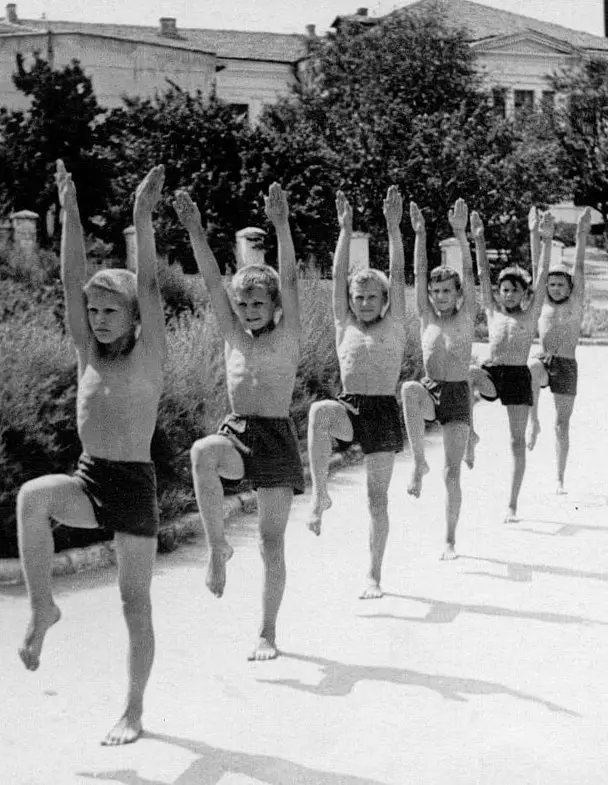
Morning exercises at Artek, once the USSR’s most prestigious summer camp.
After lunch a тихий час (nap time; the phrase literally translates as “quiet hour”) was usually held, but often children did not sleep and instead famously рассказывали истории (told stories) or otherwise хулиганили (behaved like hooligans), for example, by драться подушками (having pillow fights) or мазать зубной пастой (smeared toothpaste) on the faces of sleeping children. Then children had полдник (an afternoon snack), and they went to кружки (hobby groups) or репетиции (rehearsals). After supper, концерты (concerts) or дискотеки (discos) were held.
Special events included День самоуправления (Self-governance Day), when children would take over the camp and run their own activities. Another common “holiday” included Neptune’s Day, when everyone dressed up as sea creatures and gathered on a river bank or shore to play games.
Костер (a bonfire) marked the end of each session: all the campers got together at the bonfire to петь песни под гитару (sing songs to a guitar) and печь картошку в золе (bake potatoes in the ashes).
In many aspects, Soviet Pioneer camps resembled US Boy and Girl Scout Camps and had similar traditions, such as рукоделие (arts and crafts), which were mainly practiced by girls in the USSR, спортивные игры (playing sports), плавание (swimming), as well as пение песен (singing songs), which were practiced by all. However, гребля на байдарках и каноэ (canoeing) and плетение корзин (basket weaving) were not practiced in the Soviet Pioneer camps, unlike in many American camps that operated at the same time.
Modern Summer Camps in Russia
Children in Russia today still attend a wide variety of summer camps. Their popularity has risen since sanctions against Russia has made it more difficult for Russians to travel abroad and as more Russian parents seek to keep their children academically and creatively engaged over the summer months. Thus, many of these programs are designed not only for recreation but also for learning, skill development, and social growth, much like under the Pioneer camps under the Soviets. The main difference is that today, most camps are оплачиваются напрямую родителями (paid for directly by the parents), although there are some camps that still operate при государственной поддержке (with state support).
- Языковой лагерь (language camp) provides an immersive environment where children study foreign languages—often English—through games, activities, and everyday interactions. Language is integrated into routines like зарядка (morning exercise), прием пищи (mealtime), and вечерние свечки (evening candlelight reflections).
-
Образовательный лагерь (educational camp) can be thought of a bit like summer school, but is generally посещают целеустремленные студенты (attended by driven students) rather than those that need to retake failed subjects. These camps focus on academic enrichment in subjects such as science, math, and business. Older students often attend specifically to prepare for national exams like the ОГЭ (Basic State Exam) and ЕГЭ (Unified State Exam), upon which university admission and funding often hangs.
- Лагерь по программированию (coding camp) teaches digital skills like программирование (coding) in various languages, web-разработка (web development), and робототехника (robotics).
- Творческий лагерь (arts camp) offers activities like театр (theater), музыка (music), and художественное искусство (visual art). Children participate in workshops and performances, often led by professional artists. Likewise, a тематический лагерь (thematic camp) builds its program around a central idea, such as a book or film with students roleplaying and doing various activities based on for example, Гарри Поттер (Harry Potter), which is wildly popular in Russia. Meanwhile, театральный лагерь (theater camp) develops skills in acting, сценическая речь (stage speech), and сценическое движение (stage movement). Theater camp programs often conclude with a play or performance for families.
- Спортивный лагерь (sports camp) emphasizes physical training in areas like футбол (soccer), плавание (swimming), and хоккей (hockey). Likewise, танцевальный лагерь (dance camp) offers intensive training in styles like хип-хоп (hip-hop), контемпорари (contemporary), and дэнс холл (dancehall). Children take part in баттлы (battles), джемы (freestyle sessions), and staged performances.
- Городской лагерь (urban day camp) operates in cities during workdays and does not include overnight stays. Programs range from языковые (language) to творческие (creative), экскурсионные (excursions), and профориентационные (career-oriented), offering flexibility and affordability for parents.
- Семейный лагерь (family camp) allows children to attend with parents or grandparents. These camps are especially popular on holidays and combine leisure with activities designed to strengthen intergenerational bonds.
- Военно-патриотический лагерь (military-patriotic camp) promotes патриотическое сознание (patriotic awareness) and гражданская ответственность (civic responsibility). Activities include строевая подготовка (drill training), оказание первой помощи (first aid), and стрелковая подготовка (firearms safety), along with outdoor survival skills.
While there are many different types of camps to choose from, the last type on this list has caused some controversy and even garnered international media attention.
Artek: The Summer Camp Stradling Divides and Controversies
The most famous Pioneer camp during the Soviet period was Artek, located in Crimea. Children could apply to go to that elite camp, but only those with достижения в учебе, спорте, общественной деятельности (accomplishments in their studies, sports, and social life) were accepted. The vast majority of those chosen to attend were children of party officials and others считавшихся частью советской «элиты» (considered to be part of the Soviet “elite” class).
Under the Soviets, nearly 30,000 children attended Artek each year. The camp, located on the Black Sea coast, estimates that nearly 2 million children have visited over its lifetime.
Artek declined in the 1990s as funding for state-run institutions dried up after the USSR’s collapse. However, после аннексии Крыма Россией (after Russia annexed Crimea) in 2014, Moscow invested $200 million to transform Artek into a символ возрожденного российского туризма (symbol of revitalized Russian tourism) on the peninsula. Artek’s facilities, now отремонтированные и модернизированные (refurbished and upgraded), include swimming pools, tennis courts, киностудии и музыкальные студии (film and music studios), парусный флот (a sailboat fleet), 3D-принтеры (3D printers), and a 7,000-seat amphitheater. Wi-Fi is now available throughout the camp.
Russia also revived a советскую инициативу (Soviet-era initiative) inviting international children to Artek, echoing past стратегии мягкой силы (soft power strategies). During the Cold War, the USSR used the camp to shape global perceptions of Soviet policy. Children from some 150 countries attended, including up to 400 from the U.S., many from families of активистов движения за мир и прогрессистов (peace activists and progressives). Groups like the YMCA, Boys & Girls Clubs of America, and the American Indian Movement helped promote the program to Americans.
While Russia hasn’t заявляла идеологические цели (stated ideological goals) directly, it has stated aims to restore Artek’s status as a top global youth camp and promote it as a brand. Children now take home Artek-branded uniforms, T-shirts, and backpacks.
Perhaps the best-known American Artek participant was Samantha Smith, a 10-year-old who, in 1982, wrote to Soviet leader Yuri Andropov asking why СССР хотел воевать с США (the USSR wanted to fight the US). After Pravda published her letter, Andropov invited her to the USSR to see the country for herself. Her 1983 visit included a stay at Artek where she remains a hero. A tree-lined path by the sea is named after her, marked by a памятный камень (commemorative stone).
Today, 95% of Artek spots достаются российским детям с высокими показателями (go to high-achieving Russian children) who attend for free. The remaining 5% can be earned through competitions or purchased. In recent years, before the Ukraine war, American families paid around $1,200 for 21 days, although even they сначала приходилось проходить конкурсный отбор (had to be selected through a competitive process first).
At the modern Artek, campers wake at 8 a.m. под три задорные песни (to three upbeat songs)—for waking, dressing, and getting to morning exercise. The camp offers спортивные, тематические мероприятия, походы и другие мероприятия на природе (sports, themed events, hiking, and other nature-related activities) focused on teamwork, confidence, and discipline.
It has also courted controversy in recent years. In 2019, Ukraine condemned Russia’s use of Artek в целях политической пропаганды (as political propaganda) in a statement to UNESCO. Since the war in Ukraine began, it has been reported that Russia has introduced military training and патриотическое воспитание (patriotic education) as part of the camp’s activities for participants as young as eight.
You’ll Also Love
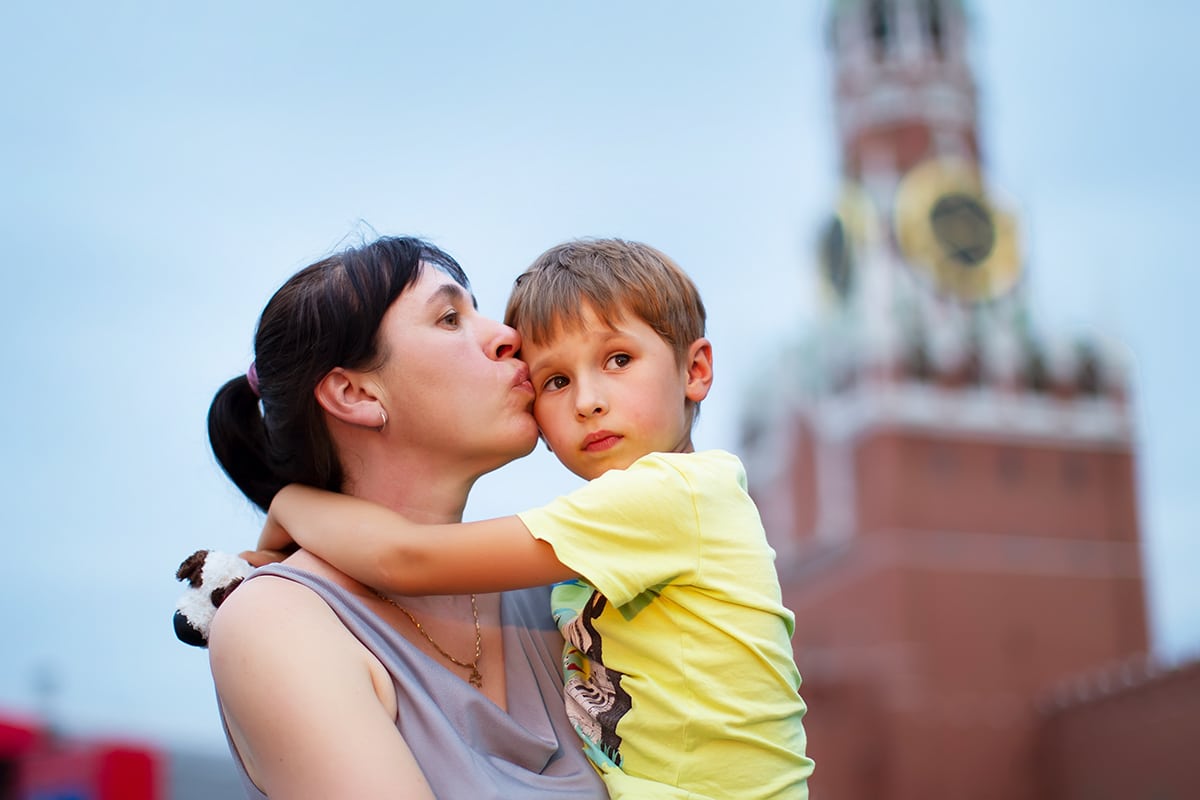
Russian for Wonks: Demographics and Childbirth
Russian demographics have been a major policy issue for the Russian state since its formation in 1991. As the population continues to age and fertility…
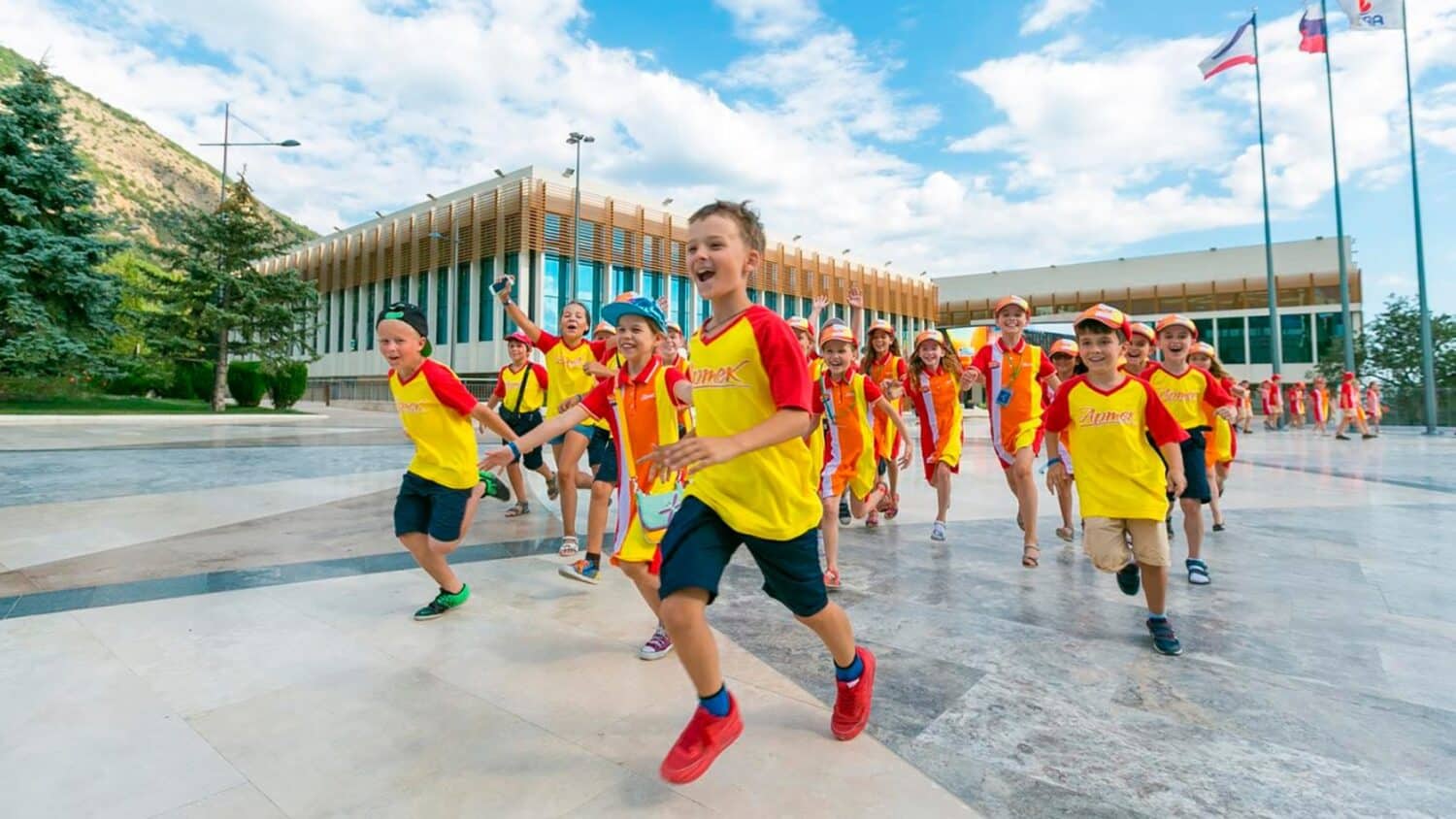
Russian for Wonks: The Geopolitics of Summer Camp
For many Russian children, summer camp is a cherished rite of passage—an escape from school routines into a world of bonfires, games, and shared songs….
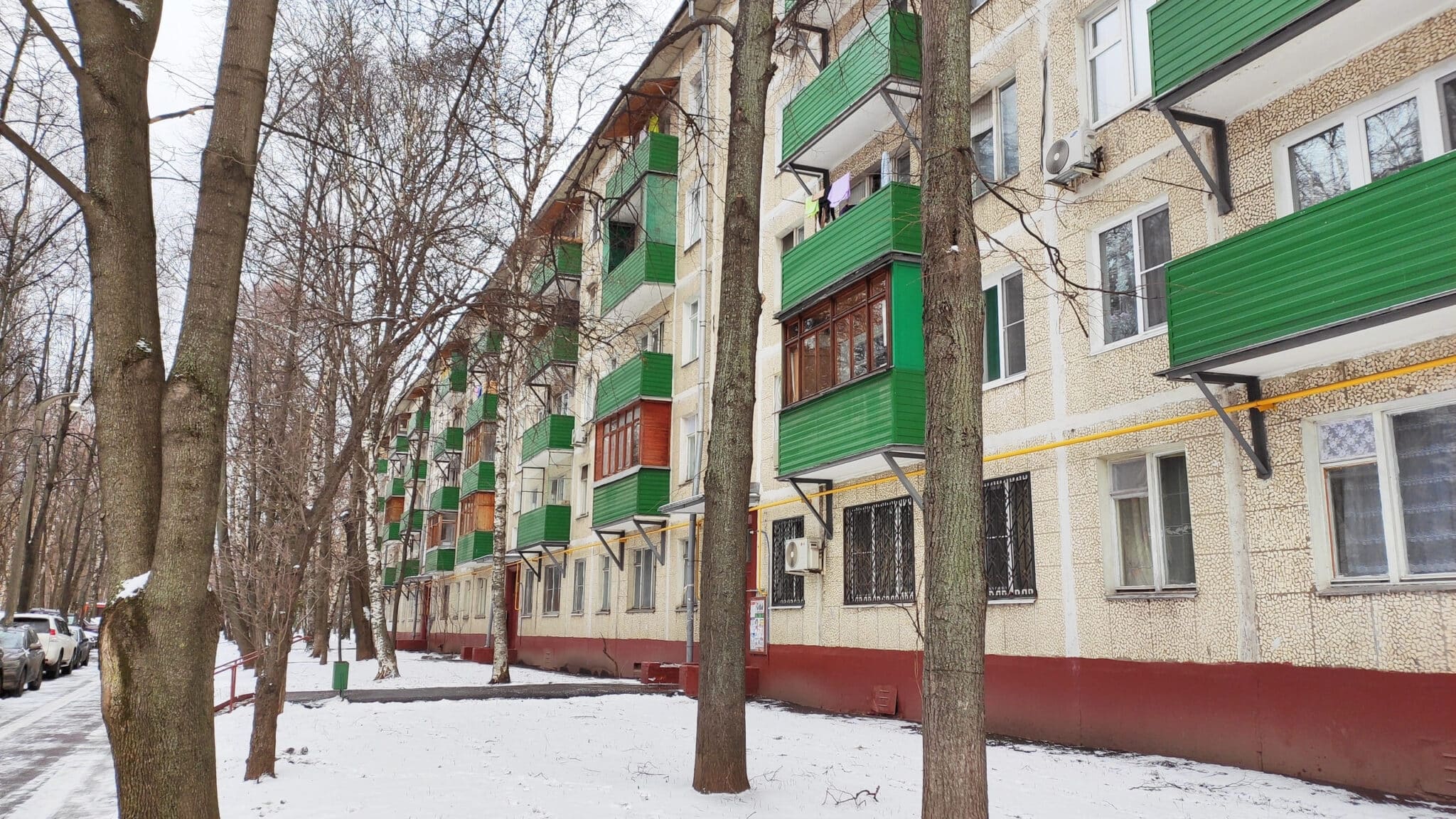
Renting in Russia: Language, Legalities, and Culture
The word for “landlord” in Russian is actually the same as the word for “host” – . Renting in Russia, whether apartments or rooms, comes…
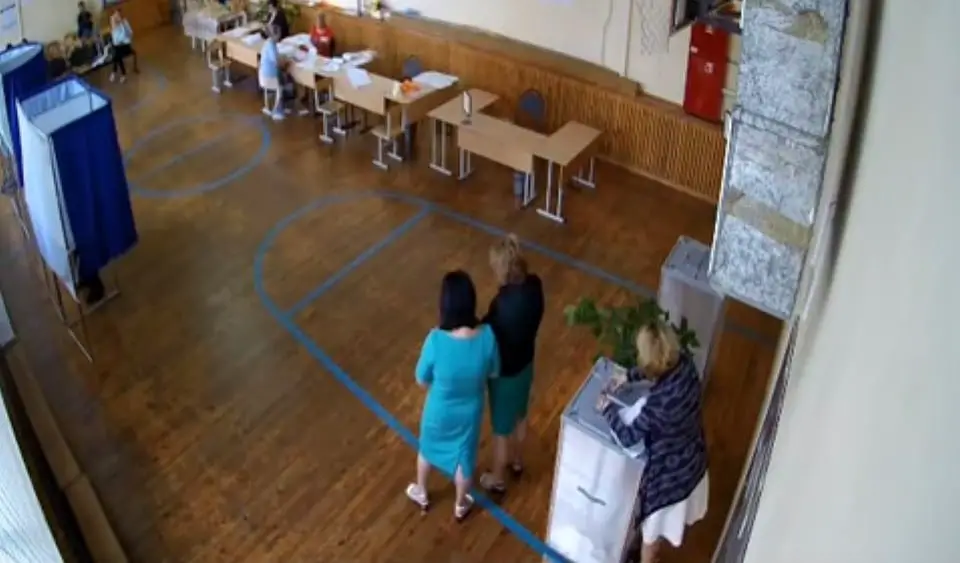
Russian MiniLessons: Подтасовка результатов выборов – Rigging Elections
The following bilingual Russian MiniLesson is meant to build your vocabulary by providing Russian phrases within English text. Hover over the bold Russian to reveal…
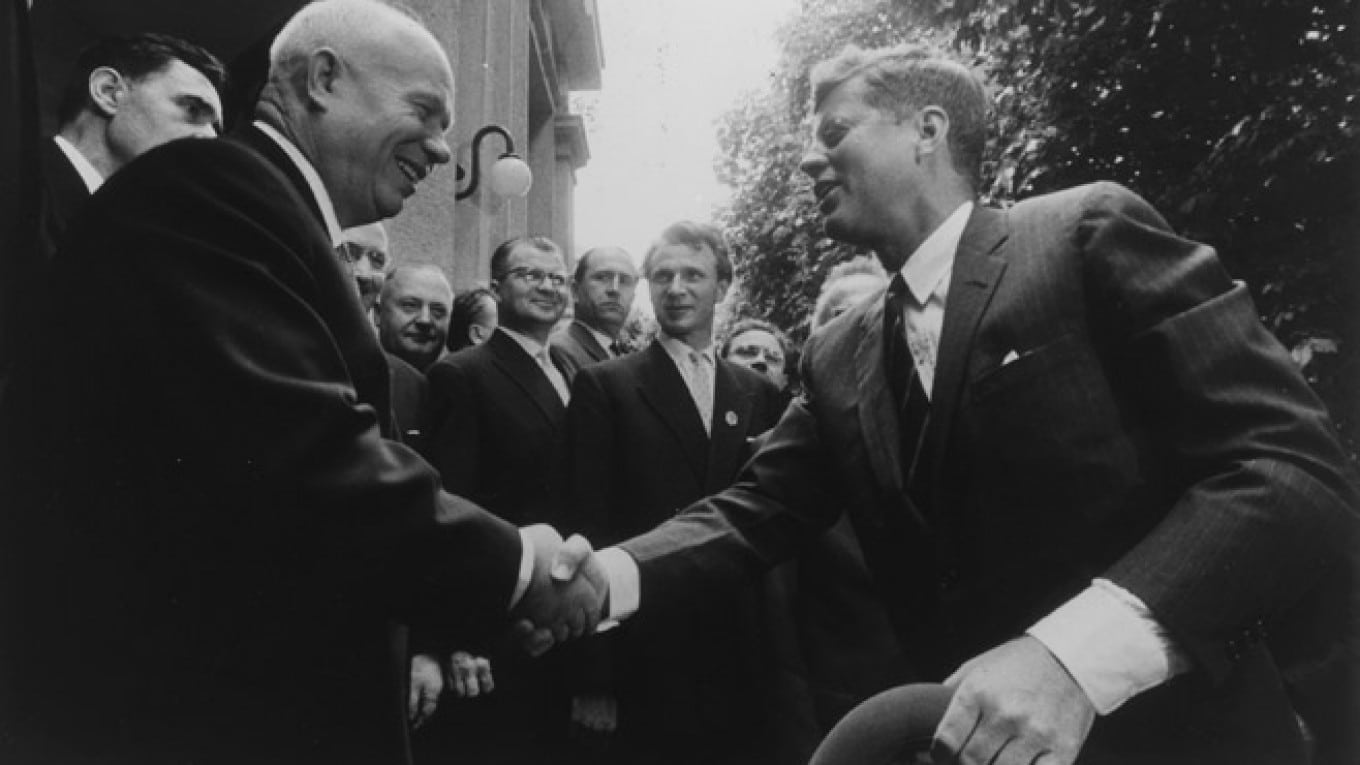
Russian MiniLessons: Холодная война – The Cold War
The following bilingual Russian MiniLesson is meant to build your vocabulary by providing Russian phrases within English text. Hover over the bold Russian to reveal…


